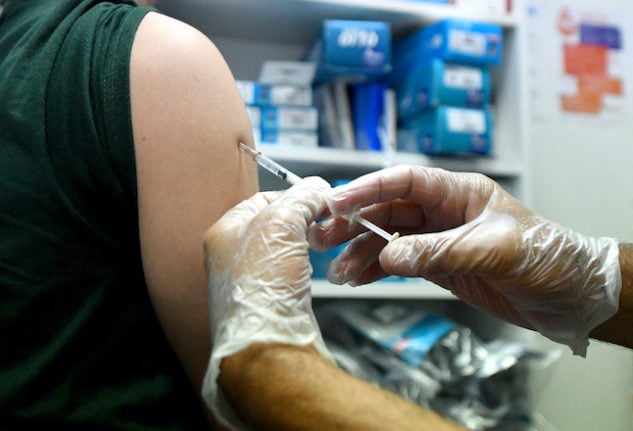Spain has 6,119 confirmed cases of monkeypox, according to the most recent data released on August 19th by the National Epidemiological Surveillance Network (RENAVE), coordinated by the Spanish Ministry of Health.
Infections continue to grow in Spain and it is currently the country with the most cases per inhabitant in the EU.
The monkeypox vaccination campaign began at the end of July 2022 and is currently being ramped up because of the rise in infections.
Here’s everything you need to know about Spain’s monkeypox inoculation plans.
Who is at risk from monkeypox?
Although around 80 percent of the cases in Spain have been detected in gay men, it is important to stress that it can affect either gender and any sexual orientation.
Currently in Spain, 6,009 of those infected are men and 110 are women. Age ranges from 10 months to 88 years, with a median age of 37 years.
It is not a sexually transmitted disease and like Covid-19 it can be passed on by having direct or close contact with an infected person.
Children and pregnant women are also reportedly at a higher risk of having complications from contracting monkeypox.
READ ALSO: How Spain’s gay community has taken action as monkeypox spreads
Who will receive the monkeypox vaccine in Spain?
Currently, the monkeypox vaccine is only being administered in two doses to those who have come into direct contact with an infected person, those who are likely to and those who are at risk of being infected.
It is being offered to people between the ages of 18 and 45 who have multiple sexual partners.
To be able to request the vaccine you must not have previously received it, not have already had monkeypox, not have been in contact with a confirmed case within the previous ten days, or have symptoms consistent with monkeypox.
Currently, only the first doses are being administered, but if there are enough doses to go around, second shots will be given four weeks after the first.
How will the monkeypox vaccine be administered in Spain?
The vaccine has been administered in two doses, however, on Monday August 22nd Spain’s Public Health Commission approved that each monkeypox vaccine will be divided into five doses. This is a temporary measure to help deal with the current health crisis.
It means that instead of injecting 0.5 millilitres of serum in one dose, 0.1ml will be injected. However, pregnant women and the immunosuppressed will still be given the 0.5ml dose.
This new measure means that Spain will be able to vaccinate five times the number of people than it can now.
Spanish health authorities will have the capacity to administer 50,000 doses in the short term.
How can I request the monkeypox vaccine in Spain?
If you meet the requirements above, you can request your monkeypox shot by contacting your local health centre.
The availability or wait time will depend on what region of Spain you live in.
In Madrid for example, you can request an appointment for the vaccine online by clicking here. There are however reports on August 23rd that the rollout has been temporarily suspended in the Spanish capital.
In Barcelona, it is being offered at three centres – BCN Checkpoint, Clínic de Barcelona and Unitat d’ITS Drassanes-Vall d’Hebron.
Will getting the monkeypox vaccine stop me from getting the virus?
No. As with the Covid vaccine, the monkeypox vaccine will not stop you from contracting the virus, but it does help limit some of the symptoms and the severity of the disease.
How effective is the monkeypox vaccine?
Dr. Rosamund Lewis, WHO’s technical lead for monkeypox, said in early August that “we have known from the beginning that this vaccine would not be a silver bullet, that it would not meet all the expectations that are being put on it and that we don’t have firm efficacy data or effectiveness data in this context”.
“The fact that we’re beginning to see some breakthrough cases is also really important information because it tells us that the vaccine is not 100 percent effective in any given circumstance, whether preventive or post-exposure,” Lewis added.
“We cannot expect 100 percent effectiveness at the moment based on this emerging information.”
A study carried out in 1988 among patients’ contacts showed that the smallpox vaccine was 86 percent effective at preventing monkeypox.
Olivier Schwartz, head of the virus and immunity unit at France’s Pasteur Institute said regarding this that “the vaccine protection figure of 85 percent dates from field studies in the 1980s and 1990s in DR Congo and is quite approximate”.
The vaccination being used to combat monkeypox in Spain is Imvanex, a vaccine used to protect against smallpox in adults.
The World Health Organisation (WHO) has declared the monkeypox outbreak a global health emergency and it has been detected in 87 countries.



 Please whitelist us to continue reading.
Please whitelist us to continue reading.
Member comments